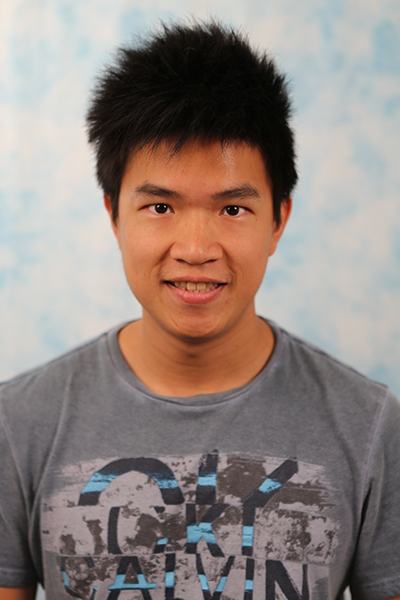Carnegie Mellon University
Learning 3D Registration and Reconstruction from the Visual World
Abstract: Humans learn to develop strong senses for 3D geometry by looking around in the visual world. Through pure visual perception, not only can we recover a mental 3D representation of what we are looking at, but meanwhile we can also recognize where we are looking at the scene from. Finding the 3D scene representation [...]
Point Cloud Registration with or without Learning
Abstract: I will be presenting two of our recent works on 3D point cloud registration: A scene flow method for non-rigid registration: I will discuss our current method to recover scene flow from point clouds. Scene flow is the three-dimensional (3D) motion field of a scene, and it provides information about the spatial arrangement [...]
Carnegie Mellon University
Development of an Agile and Dexterous Balancing Mobile Manipulator Robot
Abstract: The proposed thesis work focuses on the design and control of a new unique agile and dexterous mobile manipulator, the Carnegie Mellon University (CMU) ballbot. The CMU ballbot is a human-sized dynamically stable mobile robot that balances on a single ball. We present the development and integration of a new pair of seven-degree-of-freedom (7-DOF) [...]
Carnegie Mellon University
MSR Thesis Talk: Shengcao Cao
Title: Efficient Model Performance Estimation via Feature Histories Abstract: An important step in the task of neural network design, such as hyper-parameter optimization (HPO) or neural architecture search (NAS), is the evaluation of a candidate model's performance. Given fixed computational resources, one can either invest more time training each model to obtain more accurate estimates [...]
Dynamical Robots via Origami-Inspired Design
Abstract: Origami-inspired engineering produces structures with high strength-to-weight ratios and simultaneously lower manufacturing complexity. This reliable, customizable, cheap fabrication and component assembly technology is ideal for robotics applications in remote, rapid deployment scenarios that require platforms to be quickly produced, reconfigured, and deployed. Unfortunately, most examples of folded robots are appropriate only for small-scale, low-load [...]
Carnegie Mellon University
MSR Thesis Talk: Steven Lee
Title: Learning to Represent and Accurately Arrange Food Items Abstract: Arrangements of objects are commonplace in a myriad of everyday scenarios, such as decorations at one’s home, displays at museums, and plates of food at restaurants. An efficient personal robot should be able to learn how to robustly recreate an arrangement using only a few [...]
Carnegie Mellon University
MSR Thesis Talk: Amrita Sawhney
Title: Learning to Perceive and Manipulate Diverse Food Materials Through Interaction Abstract: The home kitchen environment presents many challenges for an autonomous cooking robot, such as the deformability of food items, the wide range of material properties of food, and the complex interaction dynamics involved in food manipulation tasks. Material properties are important when interacting [...]
Carnegie Mellon University
MSR Thesis Talk: Haidar Jamal
Title: Localization for Lunar Micro-Rovers Abstract: This talk presents an avionics and localization system that enables a lunar micro-rover to navigate autonomously. This system is important for the latest class of small, low-powered, and fast robots going to the Moon in search of polar ice. The first component of the system is an Extended [...]
PoseIt: A Visual-Tactile Dataset of Holding Poses for Grasp Stability Analysis
Abstract: When humans grasp objects in the real world, we often move our arm to hold the object in a different pose where we can use it. In contrast, typical lab settings only study the stability of the grasp immediately after lifting, without any subsequent re-positioning of the arm. However, an object’s stability could vary [...]
Planning to Minimize Human and Robot Efforts Over Tasks
Abstract: It is not feasible to pre-program robots a priori for every possible task they may encounter in unstructured domains. Upon encountering a task that a robot can't solve, one common strategy is to teach it new skills via demonstrations. However, demonstrating a task can often be more cumbersome than performing the task directly. This [...]




